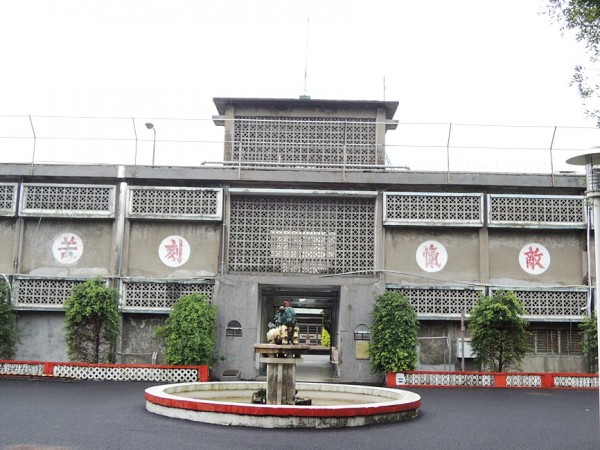《TAIPEI TIMES》 Legislature passes organizational act on establishing human rights museum

Jingmei Human Rights Memorial and Cultural Park, which used to be the Jingmei Military Detention Center, is pictured in New Taipei City’s Sindian District on Jan. 29, 2015. Photo: Weng Yu-huang, Taipei Times
By Sean Lin / Staff reporter
The Legislative Yuan yesterday passed the National Human Rights Museum Organization Act (國家人權博物館組織法), ensuring the establishment of the museum, which has been in near-limbo since 2010.
The facility is to be dedicated to archiving, researching and displaying historical documents and artifacts from the authoritarian era, as well as raising public awareness and education about the nation’s authoritarian past, the act stipulates.
It is to revitalize and maintain “historical sites of injustice” — sites where mass human rights violations were committed by a former regime — and is to assist human rights advocacy groups in promoting values about human rights and carrying out international exchanges, the act states.
Designated by the Executive Yuan as a tier-three agency in October 2010, it has been operating as a preparatory office since Dec. 10, 2010.
The museum is to be overseen by the Ministry of Culture and is to include the Jingmei Human Rights Memorial and Cultural Park in New Taipei City and the Green Island Human Rights Culture Park, the act stipulates.
Prior to the second reading, Chinese Nationalist Party (KMT) Legislator John Wu (吳志揚) took issue with the authoritarian era and historical sites of injustice defined by the bill proposed by the Democratic Progressive Party (DPP), which addresses alleged human rights violations and controversial land seizures perpetrated by the KMT between Aug. 12, 1945, and Nov. 7, 1992, when the Period of National Mobilization for Suppression of the Communist Rebellion (動員勘亂時期臨時條款) was ended in Kinmen and Lienchiang counties.
Wu said the bill should also cover injustices committed by the Japanese colonial government, including the seizure of Aboriginal territories and forcing Taiwanese women into sexual slavery.
The bill was passed with a majority vote from the DPP.
DPP Legislator Yu Mei-nu (尤美女) said that the passage of the act has special significance, as the nation celebrated the 30th anniversary of the lifting of the martial law this year.
“It is a nation’s duty to promote transitional justice after its transition from an autocracy to a democracy,” as it would be difficult for a young democracy to function properly without upholding transitional justice, she said.
“Many people expect the government to reflect upon its past deeds and are waiting for the truth to be uncovered through research of historical files,” she said.
Preparatory Office of the National Human Rights Museum director Chen Chun-hung (陳俊宏) on Monday said that the museum could be launched in January if the bill passed this year.
In other developments, the Mongolian and Tibetan Affairs Commission was officially dissolved after DPP and New Power Party lawmakers voted to abolish the Mongolian and Tibetan Affairs Commission Organization Act (蒙藏委員會組織法).
The motion was put to a vote during a plenary session after facing opposition from the KMT caucus, which had stalled cross-caucus negotiations for months.
Several lawmakers tendered motions to abolish the agency, saying the commission’s “obscure” functions did not justify its personnel costs.
Directorate-General of Personnel Administration Minister Jay Shih (施能傑) said during preliminary reviews of the motion that the Executive Yuan on Jan. 1, 2011, set a plan to reduce the number of agencies it oversees from 39 to 27, with the commission among the list of agencies to be abolished.
The commission’s functions are to be distributed among the Ministry of Culture, the Mainland Affairs Council and the Ministry of Foreign Affairs, which will be in charge of preserving Mongolian and Tibetan cultures in Taiwan, monitoring the social and political landscape in Tibet and Mongolia, fostering Mongolian talent, and providing humanitarian assistance to Mongolia and the three federal subjects of Russia that are of Mongol descent respectively.
Additional reporting by Su Fang-ho
新聞來源:TAIPEI TIMES



















